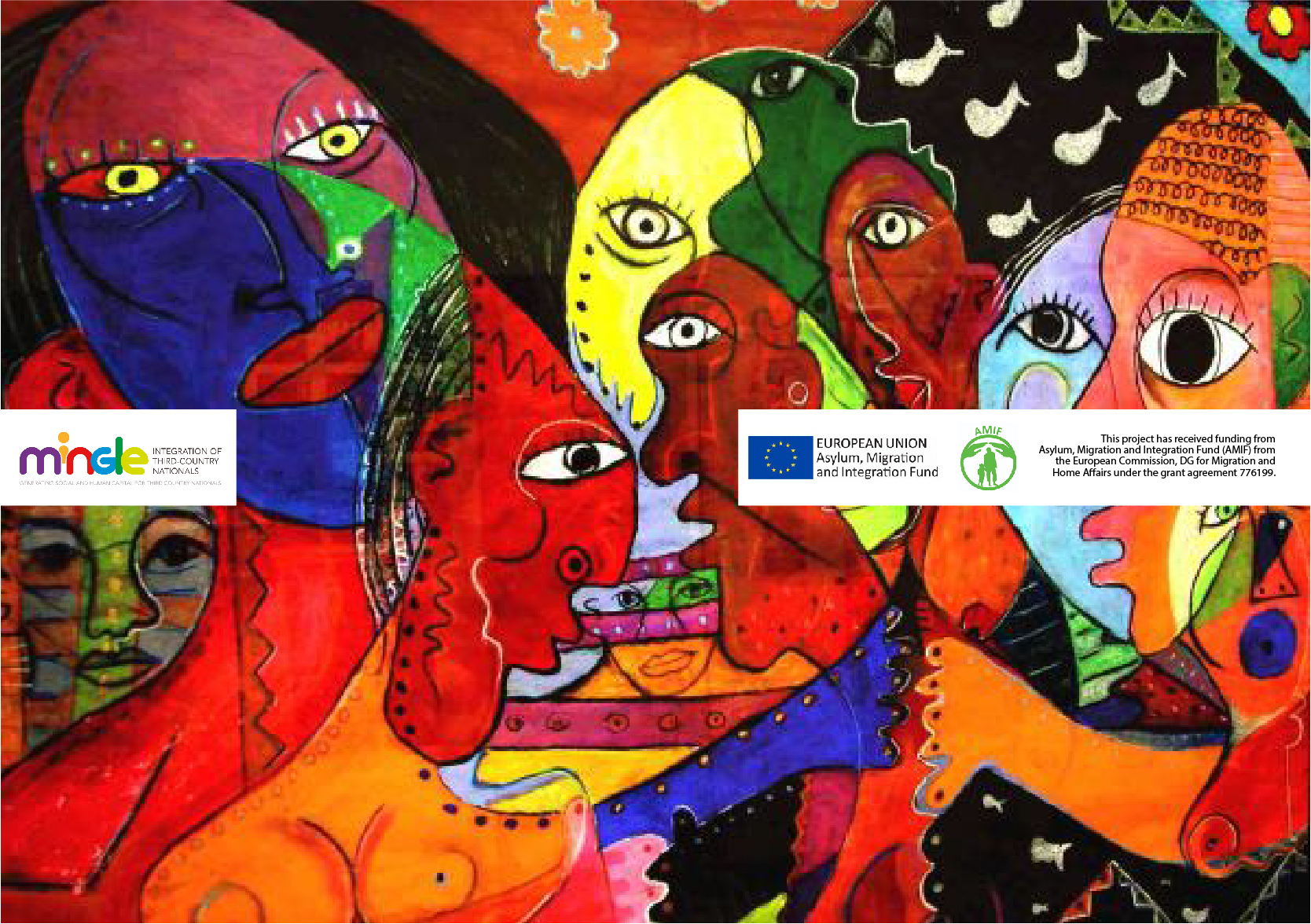Social Skills Development Training
The training is addressed to adults and unaccompanied minors TCNs reside in Cyprus. The adults TCNs leaving either in their houses or in Reception and Accommodation Center for Applicants for International Protection operates under the supervision of the Asylum Service. The unaccompanied minors were leaving either in private or social services shelters.
“Hope For Children” CRC Policy Center in corporation with the Nicosia Municipality Multifunctional Foundation have successfully completed the project titled “Social Skills Development Training” which was co-funded by the Asylum, Migration and Integration Fund of the European Funds Unit, of the Ministry of Interior and the Republic of Cyprus. “Hope For Children” CRC Policy Center was the Final Beneficiary of the project, with the partner being the Nicosia Municipality Multifunctional Foundation. The project aimed to socially integrate Third-Country Nationals residing in Cyprus whilst developing social skills which will enhance their prospects of social integration in the host country and the European Union, aiming to prevent delinquency and radicalization. One hundred seventy two people have attended the trainings – seventy three adults and ninety nine children, including unaccompanied children – and took part in two, 8hour-sessions of various topics such as: 1) European Union & Rebublic of Cyprus, 2) Racism, Diversity & Acceptance, 3) Social Environment and Communication, 4) Cypriot Culture and European Society Characteristics, 5) Gender in European Union- Woman Role, 6) Loss: Adjustment & Change. All the topics mentioned above gave the opportunity to the participants to gain valuable information about racism and acceptance of diversity, the role of women in European societies and gender equality, adjustment and the possibility of change through loss, ways of communication in a social environment, whilst aiming to inform and raise awareness on the aspects of social life and culture in Cyprus and the European Union. The training sessions included presentations and experiential workshops. All of the training sessions were facilitated by special trained facilitators of ”Hope For Children” CRC Policy Center and of the Nicosia Municipality Multifunctional Foundation. All of the sessions were supported with the assistance of interpreters since the participants’ county of origin were Somalia, Philippines, Syria, Egypt, Palestine, Congo, Mali, Cote d’ Ivoire, Cameroon, Gambia and China. |
In the sessions, non-formal learning methods are used, so the participants had the opportunity to more easily digest the information provided by each thematic session. With the use of experiential workshops combined with presentations, participants managed to link their own personal experiences to the subject that each training session had. At the end of each meeting, the trainers were giving time to the participants to reflect on what has been discussed and give their feedback, as well as the emotions that may have been caused, as some of the topics discussed were often emotionally charged. Participants reported that the training sessions established a place that they felt safe to express themselves while they interacted with concepts such as “Gender”, “Democracy”, “Equality” that were not familiar to them. Feedback questionnaires were also given to participants where the statistical analysis shows that the trainers were ranked high for their level of knowledge, responding to questions and encouraging them to participate in education (Avg = 4.38 with a maximum score of 5). Also, the activities included in the training were rated with high scores, more specifically questions about usefulness, motivation, and entertainment (Avg = 4.44). The most frequently mentioned feelings were joy (61.07%), happiness (51.15%) and enthusiasm (33.59%). Also, approximately 30% of respondents reported that they felt empowered. Furthermore, in order to evaluate the level of effectiveness of the training sessions, questionnaires were given to the participants pre and post training session, examine what they knew and what they have learned for each of the 6 thematic sessions (European Union & Rebublic of Cyprus, Racism, Diversity & Acceptance, Social Environment and Communication, Cypriot Culture and European Society Characteristics, Gender in European Union- Woman Role, Loss: Adjustment & Change). (See appendix 1 and 2 ). The questionnaires were translated in their mother language. 131 participants who filled up the section related with the various feelings came up during the training sessions, most common answers have mostly to deal with “Joy” (61.07%), “Happiness” (51.15%) and “Excitement” (33.59%). Also, 22.90% of the participants mention that they felt empowered by the knowledge gained through the training sessions. (See appendix 3) |
| ☒ Education ☒ Participation in political processes and in decision-making ☒ Cultural awareness |
☒ Language Training
☒ Language Assessment
☒ Intercultural communication
The project implemented in Nicosia, Cyprus and the beneficiaries for the project were Third- Country Nationals (TCNs), reside in several towns and villages in the republic of Cyprus.
Name: Stavroula Georgopoulou
Organization: Nicosia Municipality Multifunctional Foundation
Telephone:22797850/860
- Average of participants’ answers for each category Pre and Post training session.
- Total Average Pre and Prost training sessions.
- Frequency of feelings came up through training sessions.
